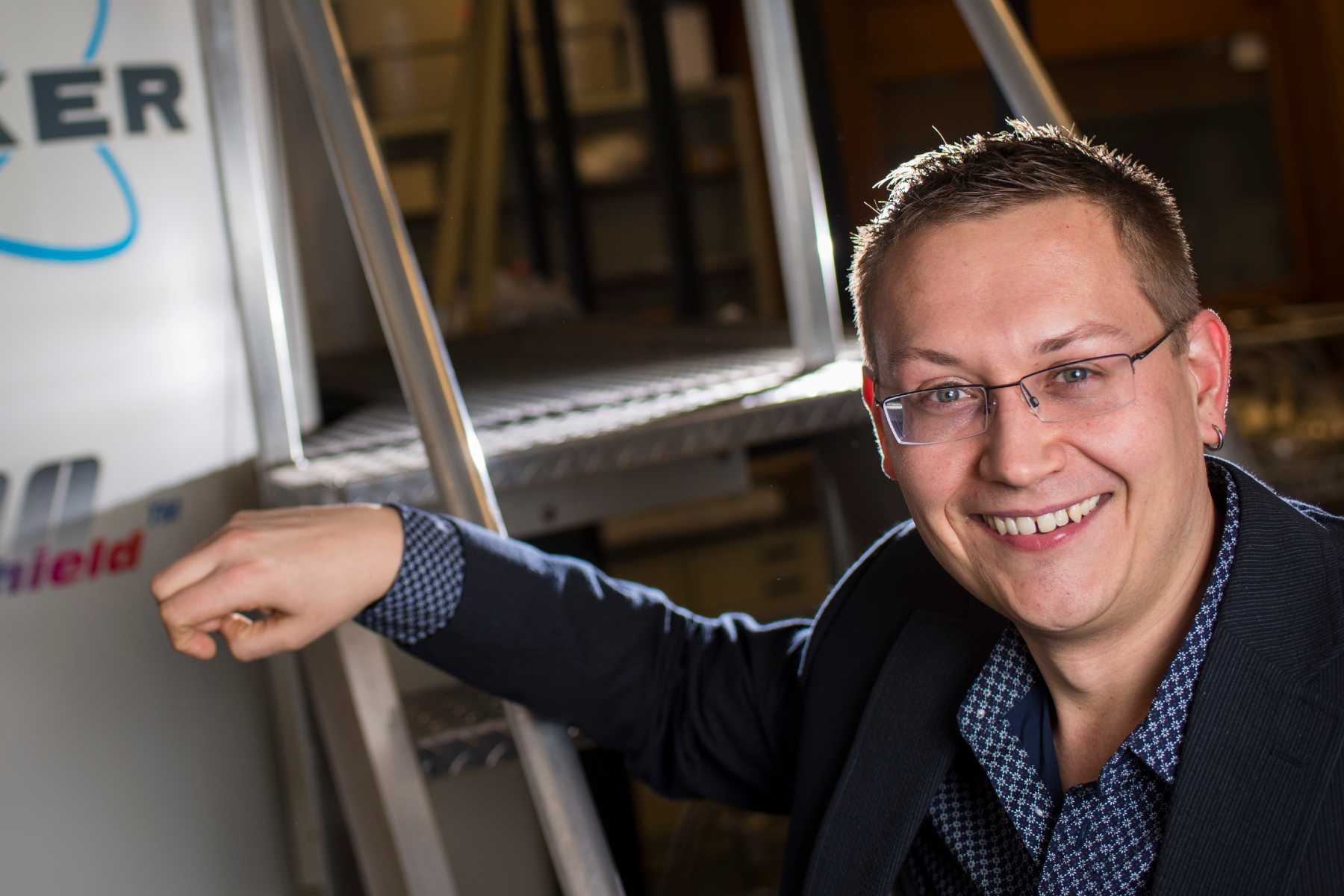
Vladimir Michaelis, professor in the Department of Chemistry, and our December Instructor of the Month. Photo credit: John Ulan
Teaching an 8 a.m. class can be tough-students really need to want to be there to get up early and make it to class. But the consistently high course evaluations received by Vladimir Michaelis in the Department of Chemistry show that his enthusiasm for chemistry, combined with his effectiveness at sharing the science behind it, resonates with his students. Meet our December Instructor of the Month, and hear why he thinks of chemistry as the world's biggest LEGO collection-and why he encourages his students to find and follow their passions.
What do you teach?
I teach Introductory University Chemistry I - CHEM 103, Introductory Spectroscopy - CHEM 298 and coordinate Chemical Research (CHEM 401 and CHEM 403) courses.
Why should people learn about this subject?
What in the world is not chemistry? Chemistry touches every aspect of our daily lives, from the batteries in our mobile devices, to the food we eat, to the medications we take. A foundation of chemistry is essential in appreciating how we as a species are able to continue advancing through new discovery.
What's the coolest thing about this field?
It's never boring. I like to think of chemistry as being the world's biggest LEGO collection. With more than 100 elements readily accessible at our fingertips, endless possibilities exist. As researchers and teachers, we are faced with complex puzzles: if and when we can identify solutions, they carry the potential for advances in health, energy, environment, and more, and ultimately to the benefit of future generations.
What was your favourite learning experience as an undergrad? How do you incorporate that experience into teaching your students?
My favourite learning experience as an undergraduate was the physical hands-on laboratories. The opportunities to get into a lab and attempt an experiment were truly some of the most exciting moments in my undergrad education.
I attempt to incorporate in-class demonstrations during the term and often call upon volunteers to assist. The students often enjoy seeing the visual and hands-on links between learning topics and everyday items or applications of where chemistry is taking place.
"Follow your passion and curiosity-not someone else's. If you truly love what you do, you won't have regrets." -Vladimir Michaelis
What was it that drew you to this field?
As a spectroscopist, I love solving puzzles. We use magnetic resonance spectroscopy to unravel atomic level pictures to understand local chemical environments, arrangement of atoms, and how they may assemble into larger molecules or solids. Solving these puzzles-with pieces one millionth the diameter of a human hair-equips us to understand certain chemical features while providing guidance and clues into new designs or improvements for other applications.
What do you feel is the most important piece of advice you give to your students?
Education is never a waste. Each class you take towards your degree builds a broader ensemble of knowledge, equipping you with perspective and ability to further solve problems.
Follow your passion and curiosity-not someone else's. If you truly love what you do, you won't have regrets.
What is one thing that people would be surprised to know about you?
I really enjoy farming-whether it's hauling grain, fixing a seeder, or driving five hours to pick up parts. It's something I still look forward to when I visit family abroad.